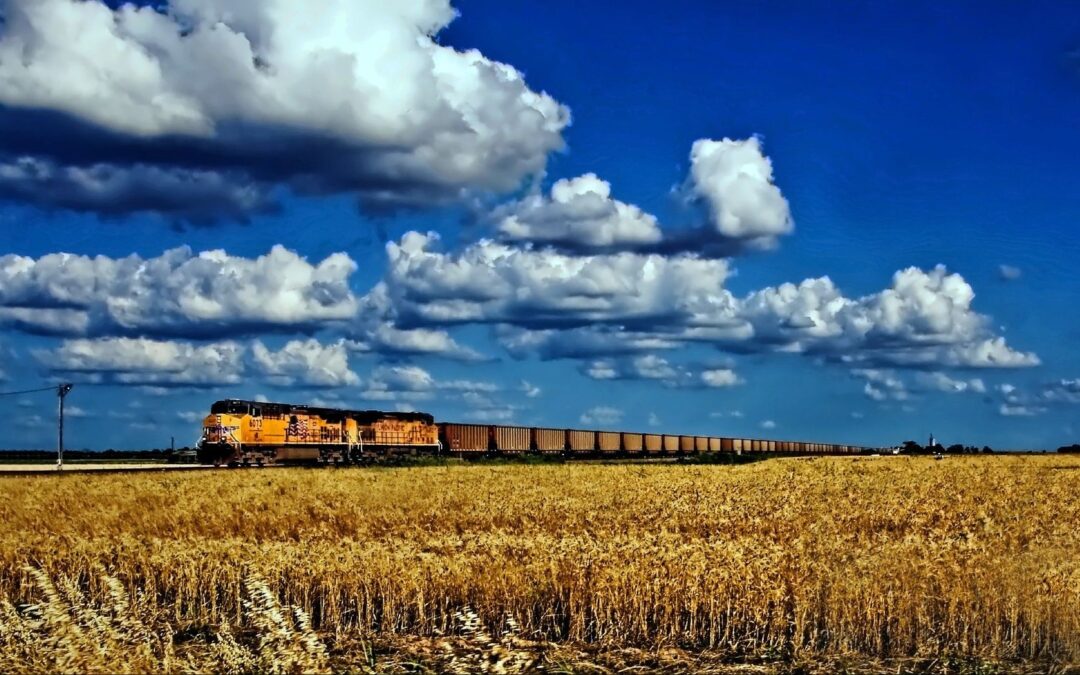Poland’s government is open to reversing its newly imposed ban on the transit of Ukrainian grain, but only if there is a “100% guarantee” that it will not enter the Polish market, says the agriculture minister.
On Saturday, Poland introduced a complete import ban – including transit – on a range of Ukrainian agricultural products, which Polish farmers had complained were lowering prices. Hungary and Slovakia, which also border Ukraine, have since announced similar measures.
Warsaw’s decision caused consternation in Kyiv, which criticised the move. It also raised concern in Brussels, with the European Commission noting that trade policy is an area over which the EU has exclusive competence.
The @EU_Commission has criticised Poland and Hungary's decisions to ban the import of agricultural produce from Ukraine.
"Trade policy falls within the exclusive competence of the EU, and therefore unilateral action is unacceptable," says a spokeswoman https://t.co/qd2srl4W7O
— Notes from Poland 🇵🇱 (@notesfrompoland) April 16, 2023
Following a meeting with his Ukrainian counterpart yesterday, Poland’s agriculture minister, Robert Telus, announced that the government is “not against transit being carried out”.
“But we must have a guarantee – a 100% guarantee – that those products that destablise our market would not remain in Poland,” he added. “That is why we are working on an agreement and solutions that could guarantee this.”
Minister @RobertTelus w #Dorohusk-Jagodzin: Prowadzimy rozmowy. Dziś również doszło do spotkania strony 🇺🇦 z 🇵🇱. Nie jesteśmy przeciwni tranzytowi, ale potrzebujemy 100% gwarancji, aby produkty, które destabilizowały nasz rynek, nie zostawały w Polsce. 🇵🇱
— Ministerstwo Rolnictwa i Rozwoju Wsi (@MRiRW_GOV_PL) April 17, 2023
The import ban also appears not to have placated at least some of the protesting farmers. One of their leaders, Michał Kołodziejczak of AgroUnia, criticised the Law and Justice (PiS) government for failing to coordinate its action with the EU.
“PiS has started the process of taking Poland out of the EU,” he told news website Gazeta.pl. “Hand in hand with Hungary, a joint decision was made…No official document from Poland went to the EU saying that duty should be reinstated or that additional measures were needed.”
Kołodziejczak noted that farmers had been warning since last summer about the dangers of posed by Ukrainian grain, which is now entering Poland in much higher quantities due to the war in Ukraine.
He said that PiS had previously ignored these concerns, and was only acting now because parliamentary elections due to take place this autumn are nearing and the party needs to win rural votes.
Over 450,000 tonnes of grain from Ukraine is being transported through Poland monthly.
That is 16 times more than a year ago and 50% more than in mid-2022, as Poland seeks to help Ukraine overcome difficulties caused by Russia's invasion https://t.co/2BofAyo0Bf
— Notes from Poland 🇵🇱 (@notesfrompoland) December 2, 2022
Meanwhile, representatives of the grain industry have said that Poland’s sudden and unilateral import ban was a blow to the country’s image as a reliable trade partner.
“On top of the problems around the situation on grain markets, we add commercial and image problems,” said Monika Piatkowska of the Grain and Feed Trade Chamber, quoted by financial news service Money.pl.
“In the current situation, we are already receiving signals from world markets and exporters that no bids are being made for the export of Polish grain because of uncertainty about prices and supply,” she added, also noting that Polish firms are now unable to buy many products that have always come from the east.
The agriculture minister has ordered checks on all grain importers after prosecutors launched an investigation into reports that wheat from Ukraine meant for industrial purposes has been sold in Poland for human consumption https://t.co/hXrO57DPy4
— Notes from Poland 🇵🇱 (@notesfrompoland) April 12, 2023
The vice president of the Polish-Ukrainian Chamber of Commerce, meanwhile, indicated that the unexpected introduction of the import ban had caused “panic” at border crossings.
“This is the result of the sudden introduction of an unconsulted decision,” Dariusz Szymczycha told Money.pl. “For example, there are goods from Ukraine at the border which are ultimately destined for the United States. However, they cannot now reach the port of Gdańsk…This is absurd and destroying economic activity.”
“The agriculture ministry screwed up,” he added. “In a move to save its image in the countryside, the great work of millions of Poles helping Ukraine was spoiled in one move. Disproportionate measures have been taken in view of the problems that are in the Polish market. Poland has turned its back on a country that is at war and needs help.”
Poland’s grain harvest is on track to hit a record 36 million tonnes this year, up 4% on 2021 and meaning the country will remain the EU's third largest producer of cereals https://t.co/zEDhFEr1AE
— Notes from Poland 🇵🇱 (@notesfrompoland) November 2, 2022
Main image credit: Carol Von Canon/Flickr (under CC BY-NC-ND 2.0)

Alicja Ptak is deputy editor-in-chief of Notes from Poland and a multimedia journalist. She has written for Clean Energy Wire and The Times, and she hosts her own podcast, The Warsaw Wire, on Poland’s economy and energy sector. She previously worked for Reuters.




















